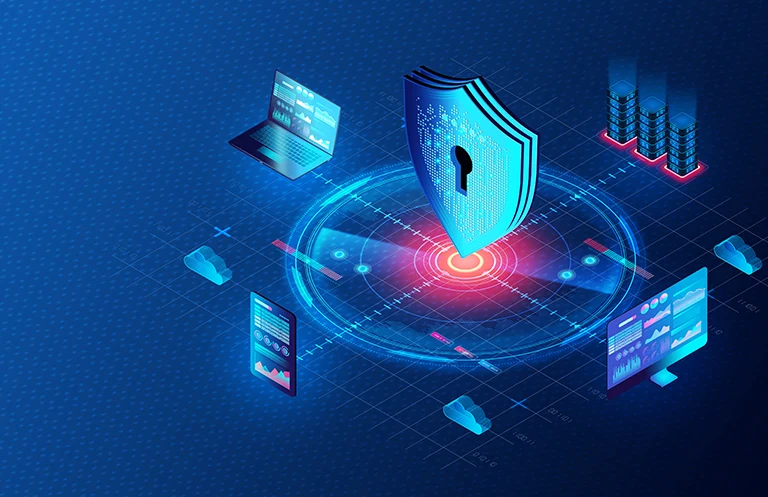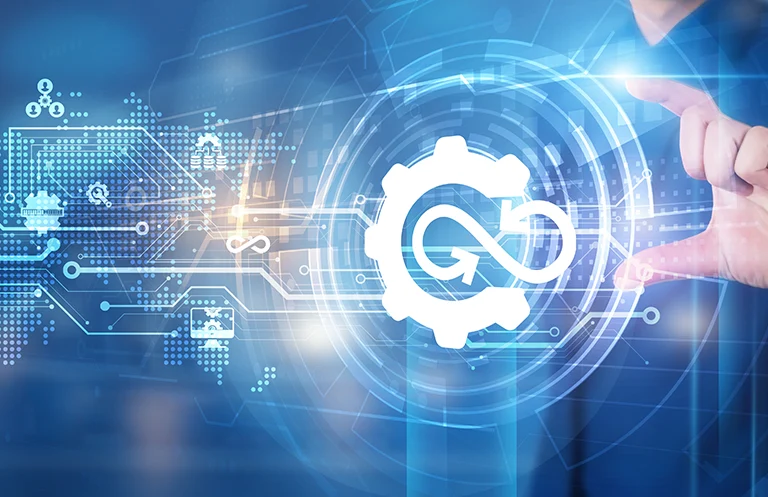Big Data Analytics is playing an increasingly significant role in the healthcare industry, as healthcare organizations look for ways to improve patient outcomes and operational efficiency.
By collecting and analyzing vast amounts of data from various sources, such as electronic health records, medical imaging, and wearable devices, Big Data Analytics can provide insights into patient condition, treatment effectiveness, and population health trends.
Even the big healthcare providers and hospitals are realizing the importance of Big Data in healthcare and as a result, according to news network, Mayo Clinic and Mercy have joined forces for a decade-long partnership aimed at utilizing data science to identify illnesses at an earlier stage and promote quicker paths to improved health for patients.
How Big Data Analytics Can Transform Healthcare Services
Big data has proven to be invaluable by making its presence felt across various sectors, particularly in healthcare. The demand for optimized and efficient patient care has increased recently, leading to the integration of medical care and technology, such as robot-assisted surgeries and the use of AR/VR for complex body evaluations. The healthcare sector is being revolutionized by big data, which includes hospital data, test results, and patient records.
Market research shows that the Big Data in Healthcare market is expected to grow at a CAGR (Compound Annual Growth Rate) of 18.2% and reach a market value of USD 81.3 billion during the forecast period 2022-2030.
Big Data Analytics in Healthcare
- It involves collecting enormous amounts of structured and unstructured data from EHRs (electronic health records), EPRs (Electronic Patient Record), and clinical decision support systems.
- The collected data is then organized, managed, and analyzed using advanced analytical techniques and machine learning algorithms to provide healthcare professionals with actionable insights into patient behavior, treatment patterns, and disease trends, thereby improving services and reducing costs.
- Big Data analytics can also support the discovery of new treatments and improve drug development through the analysis of large genomic data sets.
How Big Data Analytics Is Used In Healthcare
The growth of big data analytics has been exponential and has provided solutions to numerous industry shortcomings such as medication errors and cost inefficiencies.
The health sector generates numerous petabytes of data each year from medical devices, health imaging, EHRs, and more. Hospitals alone generate 50 petabytes of data every year.
Big data can help organize, manage, and structure this data to enhance the healthcare industry. In essence, big data offers numerous advantages in the healthcare sector due to the large volume of data generated, including improved medicine, finance, and technology, as well as increased productivity in these sectors.
Big data analytics holds immense potential for the healthcare industry to deliver better patient outcomes. Here are some key use cases:
Personalized Insights for Improved Patient Treatment
By leveraging the vast amounts of data generated, big data analytics can provide healthcare providers with valuable clinical insights that can help in the development of effective treatment plans. This leads to improved accuracy of medical decisions and reduces the complexity of treatments.
Hospitals can use big data analytics to identify the most effective practices for their patients, thus helping to enhance patient outcomes. This data-driven approach helps healthcare providers make informed decisions, ultimately leading to better health outcomes for patients.
Precise Patient Diagnostics Using EHRs
With EHRs containing a patient’s medical history, demographics, allergies, and information on recent and past illnesses, doctors can access this information through a secure information system. This enables them to make informed decisions regarding treatment plans and updates.
Moreover, EHRs can also serve as a reminder system for patients, triggering notifications for upcoming doctor visits or diagnosis, and tracking their prescriptions. This enhances patient engagement and accountability in their own healthcare.
Real Time Alerts For Rapid Decision Making
Healthcare providers can make better treatment decisions with the help of medical decision support software that analyzes medical data in real-time and alerts them with relevant information. To reduce the need for in-person visits, doctors are encouraging patients to use wearable devices that collect and submit their health information to a cloud database. This data can be used by physicians to make informed treatment decisions.
Personalized Self-Care with Biometrics Monitoring
The use of smartwatches and wearable devices for health and exercise monitoring has become more popular, as people become more aware of the benefits of biometrics monitoring.
According to fortune business insights, the global wearable market is estimated to rise from USD 35 billion in 2020 to USD 115 billion by 2028.
These devices gather a wealth of data, including heart rate, glucose levels, SPO2, sleep patterns, and more. Detection systems and classifiers are continually updated with the latest and most accurate machine learning algorithms, making it easier to identify and track common respiratory and heart conditions.
Early detection of health conditions through regular data tracking can reduce the risk of serious complications and give healthcare facilities the opportunity to provide treatment before the condition worsens. It also helps users stay informed about changes in their health.
Preventive Care for Critical Patients
Big data significantly impacts the health sector, particularly in preventive care for critical patients. By identifying potential medical risks and offering early diagnosis, medical care is modernized and personalized. For example, digital records in hospitals can quickly determine the level of admittance for patients and potential threats, and patients with similar high-risk conditions can receive efficient and accurate prognosis.
Therefore, the evaluation of big data in the medical sector can be beneficial in identifying patients who require more medical services.
Improved Efficiency with Historical Data
Data science has made diagnosis more efficient and accurate. By utilizing patient symptoms and allergy records, big data systems can provide efficient treatments and the right medications, reducing the risk of incorrect prognosis. Big data can help healthcare providers avoid human errors and cut down the cost of treatment. Integrating big data with the physicians’ experience results in improved patient treatment, shorter hospital stays, and fewer repeat admissions.
Improving Clinical Trials
Big data analytics can be used to optimize clinical trials by identifying suitable patients, reducing recruitment times, and improving trial efficiency.
Supply Chain Optimization
Healthcare organizations can use big data analytics to improve supply chain management by analyzing data on drug utilization, inventory levels, and purchasing patterns. This helps reduce waste, improve cost-effectiveness, and ensure an adequate supply of essential drugs and medical supplies.
Fraud Detection
Healthcare organizations can use big data analytics to detect fraudulent claims and billing practices, reducing the overall cost of healthcare.
Conclusion
In the healthcare industry, big data is driving new advancements that are transforming the sector. The combination of big data systems and innovative healthcare solutions is leading to better patient treatment and more accurate medical diagnosis.
eInfochips offers a comprehensive suite of data services that covers the entire data lifecycle, including data acquisition, ingestion, aggregation, storage, processing, visualization, and analytics. With these services, companies can align their data transformation investments with their business outcomes.
To learn more about our data analytics services, speak with one of our experts today.












